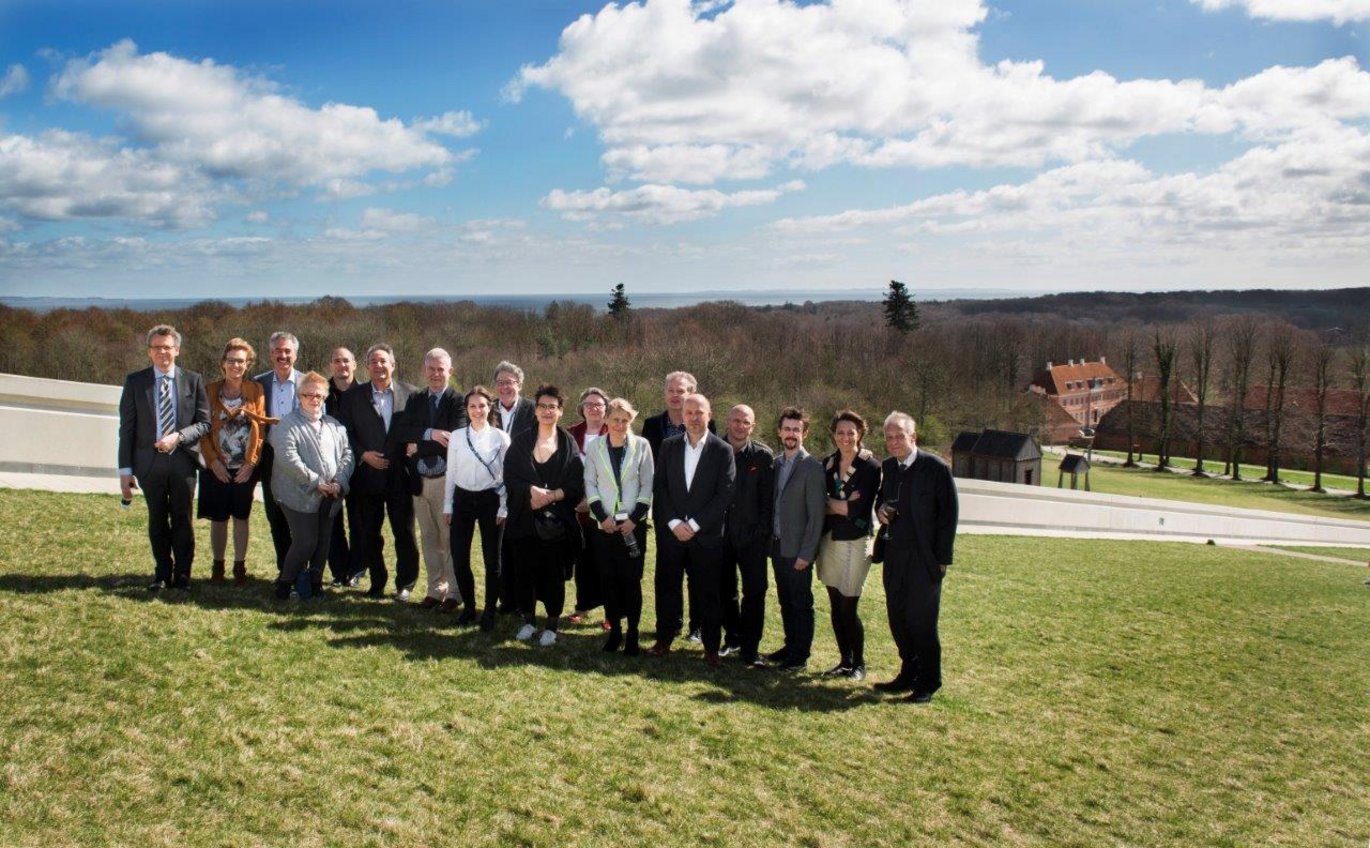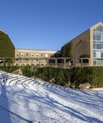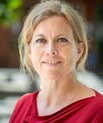Faculty of Arts in an international perspective
A visit by the faculty’s advisory board on 16-17 April 2015 gave the faculty an international perspective on the current challenges resulting from the government’s degree programme resizing initiative as well as the process of reorganising the faculty.

For two busy days the faculty management discussed education and research with the faculty’s advisory board, which includes experts from universities in the UK, Ireland, the Netherlands and the US.
“This was a unique opportunity to compare our own situation with research and education in other countries. You could say it was like a reality check which put the challenges facing us at the moment into a broader perspective. For instance, the advisory board members regarded the degree programme resizing initiative as a major but manageable challenge for a university with the kind of large resources and development potential that we have,” explains Johnny Laursen, the acting dean of the faculty.
Keen to get involved
The three heads of school presented the work involved in shaping the new educational profile at the Faculty of Arts. The advisory board members played an active role in the discussion, with several of them offering their assistance for the tasks that lie ahead as well as for academic development at local level.
“We tested our ideas about further development – and got some new ideas, as well. There were plenty of detailed suggestions and thoughts, and we’ll be following up on them with the heads of school and the advisory board members, who said they were very keen to get involved. We need to seize this opportunity and invite them to visit our subject environments, where they can give us the benefit of their experience and ideas. I think we ought to make access to the advisory board and their expertise more democratic,” says Laursen.
Focusing on our strengths
On the first day the participants focused primarily on education. The second day was devoted to discussions about research: the Horizon 2020 programme and the impact of the faculty’s research, for instance. There was a guided tour of Moesgaard Museum and a presentation of the collaboration between the museum and AU.
The advisory board members were also introduced to three selected research environments: technology and learning at the School of Education, the Interacting Minds Centre, and AU Smart Cities.
In this connection, the advisory board members asked for a much clearer indication of the faculty’s strengths in terms of both research and education.
“There were a lot of comments about strengthening the profiles of our degree programmes and setting an ambitious agenda to increase the pace of our quality work. For instance, they encouraged us to communicate far more clearly about the strengths of our faculty and each of our schools. In particular, they thought we should utilise our digital learning resources combined with educational development in individual degree programmes,” continues Laursen.
Come rain or shine
The acting dean is satisfied with the results of the two intensive days, which have given the management plenty to think about:
“We’d designed a programme based on challenges and opportunities. And the fact that we were so open about the challenges facing us meant that we gained a great deal of useful input. The faculty has been through some pretty turbulent times recently, but the advisory board appreciate the fact that we are always happy to see them – come rain or shine.”
Facts
The faculty’s advisory board advises the dean and faculty management team in a range of areas such as:
- The faculty’s mission and core tasks, strategies and plans of action in relation to research, education, talent development and knowledge exchange
- The range of degree programmes and their development
- The internal allocation of funding
- Organisational structure
- Our global thinking and other forms of strategic collaboration
The advisory board normally meets once a year.
Members
- Professor Sheila Anderson, Centre for e-Research, Department of Digital Humanities, King’s College London, UK
- Pro-Rector Astri Andresen, Pro-Rector for Internationalization, University of Bergen, Norway
- Professor Ronald Barnett, Emeritus Professor of Higher Education, University of London Institute of Education, UK
- Professor Maurice Biriotti, CEO of SHM Ltd, London, UK
- Professor Janis Jefferies, Professor of Visual Arts, Goldsmiths, University of London, UK
- Phillip Morris, Business Development Manager, Arts and Humanities, University of York, UK
- Professor Roger Säljö, Dean, Faculty of Education, University of Gothenburg, Sweden
- Professor Andrew Thompson, Chair in History, University of Exeter, UK
- Professor Niels Christian Nielelsen, Board Director, San Francisco, US
- Prof. dr. Wiljan van den Akker, Dean of Humanities, Utrecht University, Holland
- Professor Niels Christian Nielsen, Board Director, San Francisco, US
- Anne-Birgitte Rasmussen, Rector of Copenhagen Sixth Form College and chair of the Danish Rectors’ Conference for Sixth Form Colleges
- Professor Christoph Lindner, Netherlands Institute for Cultural Analysis, University of Amsterdam, Holland
- Professor Jürgen Barkhoff, Trinity Long Room Hub Arts and Humanities Research Institute, University of Dublin, Ireland
- Policy Advisor Fred de Vries, Education and Research, Open University of the Netherlands, Holland

